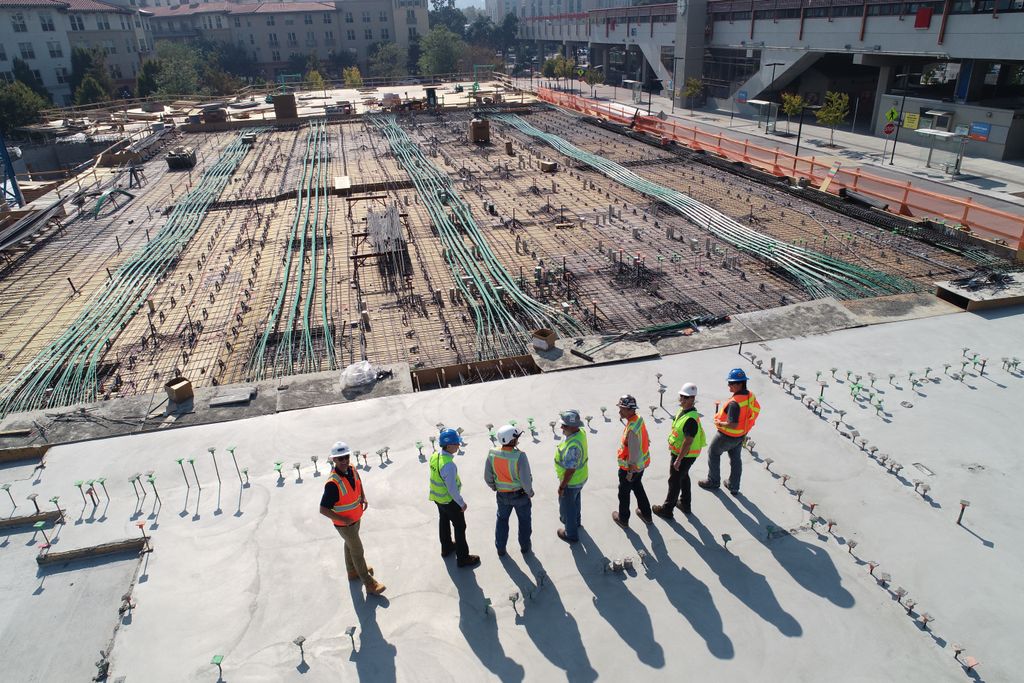The US construction suppliers face numerous challenges in the Belgian trade market. From tariffs and trade barriers to differences in standards and regulations, these obstacles can make it difficult for US suppliers to compete. However, there are strategies that can be implemented to overcome these hurdles and succeed in the Belgian trade market. This article explores the challenges faced by US construction suppliers in Belgian trade and provides key takeaways on how to navigate these obstacles.
Key Takeaways
- Understand and navigate tariffs and trade barriers
- Adapt to local standards and regulations
- Build partnerships with local suppliers
- Optimize supply chain and logistics
- Engage in government advocacy
Challenges Faced by US Construction Suppliers in Belgian Trade
Tariffs and Trade Barriers
US construction suppliers face significant challenges in Belgian trade due to tariffs and trade barriers. These barriers can include high import duties, complex customs procedures, and strict regulations. The imposition of tariffs can increase the cost of imported construction materials, making it difficult for US suppliers to compete with local suppliers. Additionally, trade barriers can create delays and uncertainties in the import process, affecting the supply chain and overall business operations.
Differences in Standards and Regulations
US construction suppliers face significant challenges when it comes to differences in standards and regulations in Belgian trade. One key area of concern is the handling of agricultural products. The regulations governing the import and export of these products can vary greatly between the US and Belgium, leading to potential barriers and complications for suppliers. It is crucial for US suppliers to thoroughly understand and comply with the specific standards and regulations set by Belgian authorities to ensure smooth trade operations.
Competition from Local Suppliers
Local suppliers pose a significant challenge for US construction suppliers in the Belgian trade market. These suppliers have a deep understanding of the local market and established relationships with customers, giving them a competitive edge. To compete effectively, US suppliers need to differentiate themselves by offering unique products or services that meet the specific needs of Belgian customers. Additionally, building partnerships with local suppliers can help navigate the complexities of the market and gain access to their established customer base.
Logistical Challenges in International Shipping
International shipping can present numerous challenges for US construction suppliers when trading with Belgium. One of the key challenges is debt recovery, which can be a complex and time-consuming process. Suppliers may face difficulties in recovering payments from Belgian customers, especially if there are disputes or delays in payment. It is important for suppliers to have a clear understanding of the legal and financial processes involved in debt recovery in Belgium.
Strategies to Overcome Obstacles in Belgian Trade
Engaging in Government Advocacy
Engaging in government advocacy is crucial for US construction suppliers in Belgian trade. By actively participating in the political process and voicing concerns and interests to government officials, suppliers can influence policies and regulations that impact their business. This can help address challenges such as financial friction and create a more favorable trade environment. Suppliers can join industry associations and trade organizations to amplify their voice and collaborate with other stakeholders. Additionally, building relationships with local representatives and policymakers can provide opportunities for dialogue and influence.
Adapting to Local Standards and Regulations
Adapting to the local standards and regulations is crucial for US construction suppliers in Belgian trade. It is important to understand and comply with the specific requirements set by the Belgian government and regulatory bodies. This includes ensuring that products meet the necessary safety standards and certifications. By adhering to these regulations, suppliers can gain the trust and confidence of Belgian customers and increase their chances of success in the market.
Building Partnerships with Local Suppliers
In order to overcome the challenges faced by US construction suppliers in Belgian trade, building partnerships with local suppliers is crucial. By collaborating with local businesses, US suppliers can gain valuable insights into the Belgian market and establish a strong presence. This can lead to increased trust and credibility among Belgian customers, as well as a better understanding of local regulations and standards. Building partnerships also allows for the sharing of resources and expertise, which can help US suppliers navigate the complexities of the Belgian trade landscape.
Optimizing Supply Chain and Logistics
To navigate the challenges of Belgian trade, US construction suppliers must focus on optimizing their global supply chain and logistics. This involves streamlining processes, improving efficiency, and minimizing costs. By implementing advanced technologies and data analytics, suppliers can gain better visibility and control over their supply chain, enabling them to respond quickly to changing market conditions and customer demands. Additionally, establishing strong partnerships with reliable shipping and logistics providers can help mitigate the risks of global supply chain disruptions and ensure timely delivery of materials and equipment.
Strategies to Overcome Obstacles in Belgian Trade
Frequently Asked Questions
What are the main challenges faced by US construction suppliers in Belgian trade?
The main challenges faced by US construction suppliers in Belgian trade include tariffs and trade barriers, differences in standards and regulations, competition from local suppliers, and logistical challenges in international shipping.
How can US construction suppliers overcome tariffs and trade barriers in Belgian trade?
US construction suppliers can overcome tariffs and trade barriers in Belgian trade by engaging in government advocacy and seeking support from trade organizations.
What should US construction suppliers do to adapt to local standards and regulations in Belgium?
To adapt to local standards and regulations in Belgium, US construction suppliers should conduct thorough research, seek guidance from local experts, and make necessary adjustments to their products and processes.
How can US construction suppliers compete with local suppliers in the Belgian market?
US construction suppliers can compete with local suppliers in the Belgian market by offering unique value propositions, such as innovative products or superior customer service, and by building strong partnerships with local businesses.
What are the key logistical challenges faced by US construction suppliers in international shipping to Belgium?
The key logistical challenges faced by US construction suppliers in international shipping to Belgium include transportation costs, customs procedures, and potential delays due to distance and different time zones.
What strategies can US construction suppliers employ to optimize their supply chain and logistics in Belgian trade?
US construction suppliers can optimize their supply chain and logistics in Belgian trade by implementing efficient inventory management systems, partnering with reliable logistics providers, and leveraging technology for real-time tracking and communication.





